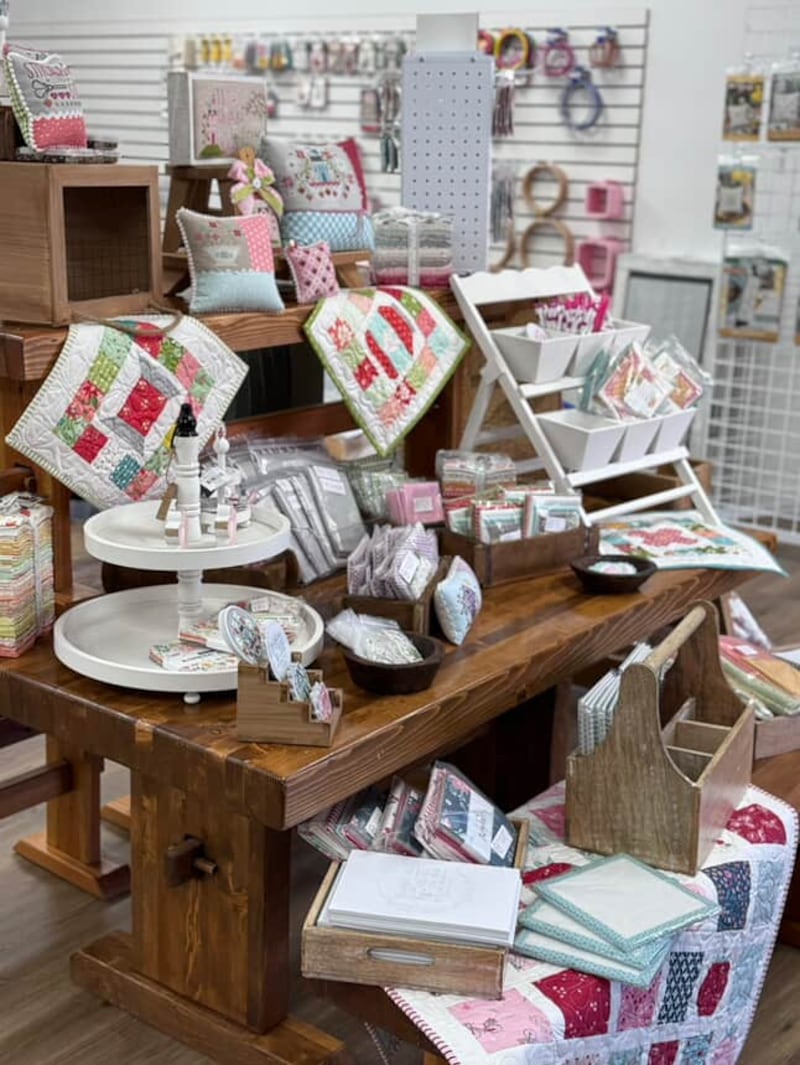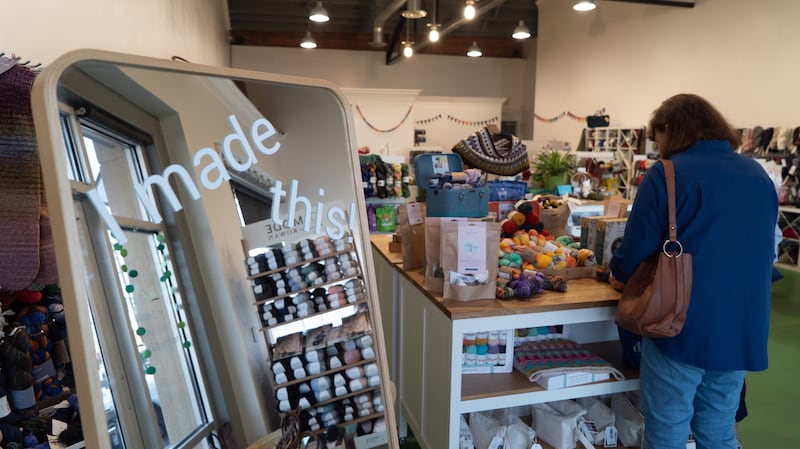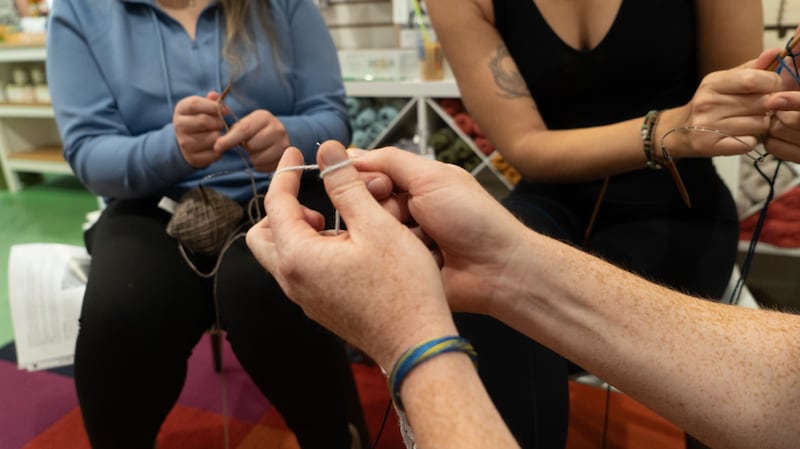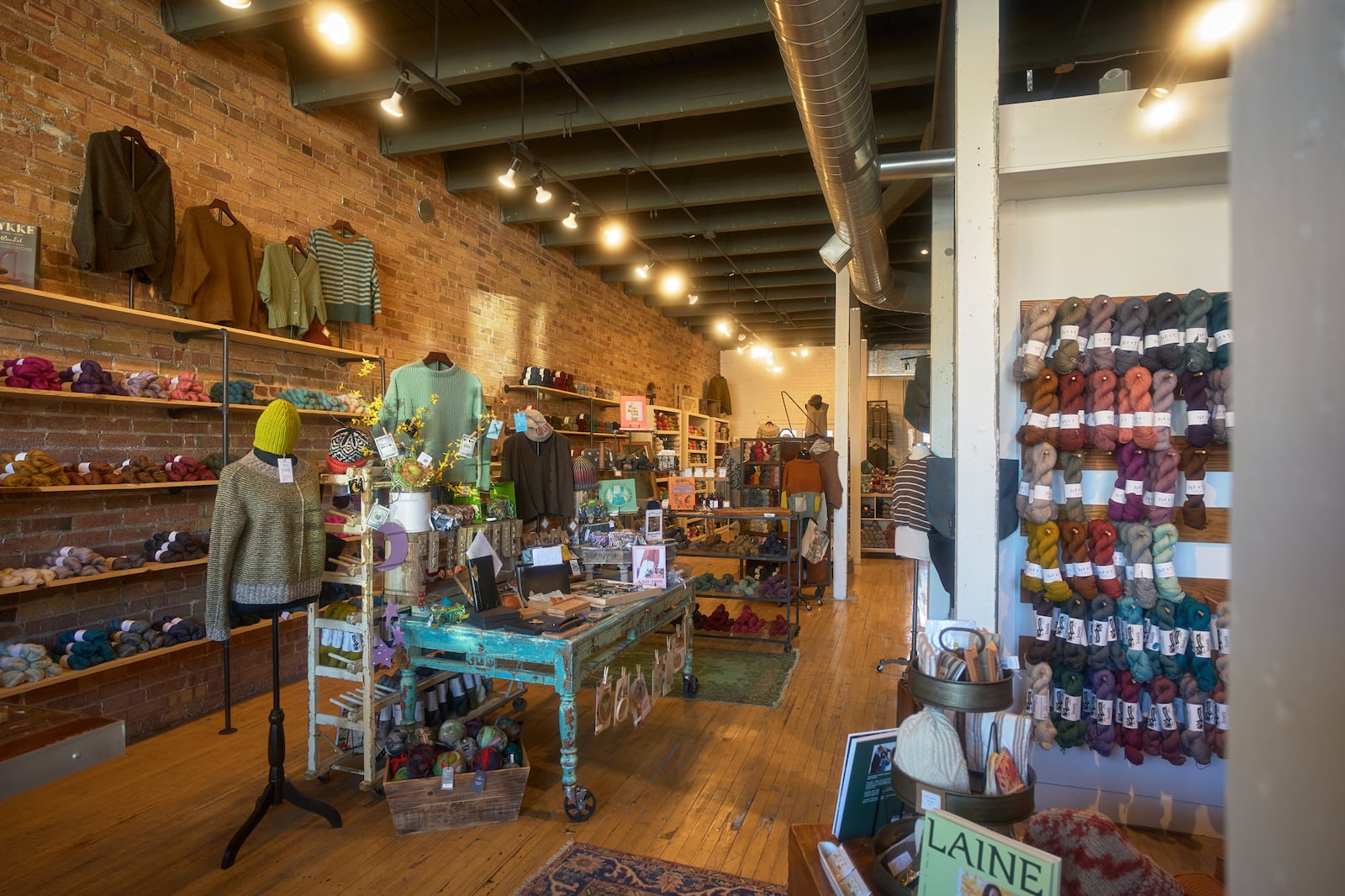This story appears in the July 2025 issue of Utah Business. Subscribe.
When JOANN announced in February that it would close all of its stores nationwide, many crafters went into mourning. For quilters, knitters and scrapbookers, JOANN had been the go-to for supplies for decades — in Utah alone, there were 13 franchise locations.
For Kellie Daniels, walking into JOANN was a nostalgic experience. “I come from a generation where my mother … sewed my clothes. I started sewing my clothes in junior high,” Daniels says. She remembers taking trips to JOANN and poring over thick pattern catalogs, looking for just the right garment.
Overall, Daniels has mixed feelings about JOANN closing. As the owner of Knitting Hive, a yarn shop less than a mile from what used to be Salt Lake City’s JOANN location, she hopes the closure will encourage Utah crafters to shop for their supplies at local businesses like her own.
Despite what some may speculate, Daniels doesn’t believe that JOANN’s closing is a sign that crafting is on the decline in Utah; other local craft store owners agree.
In Provo, there have been enough crafters to keep one yarn shop — Heindselman’s Yarn and Needlework — alive for more than 120 years. Opened in 1904, Heindselman’s claims the title of longest-standing yarn shop in the nation, and Sy Crofts, an employee, says young people are giving the crafting world a boost.

“While a lot of people may lament that JOANN’s closing must surely mean that the younger generations aren’t interested in crafts, we are seeing just the opposite. We are witnessing so much engagement from kids, teens and young adults that shows the crafting community is continuing to grow,” Crofts says. “If people weren’t interested in crafts and the fiber arts, then we wouldn’t still be open.”
Modern crafting: slow and real
Whitney Swinyard — the owner of a downtown SLC yarn shop called Handwork — agrees that crafting is on the rise as young people discover new hobbies through social media and now value slow, mindful activities. “I think in this world, [there is a] lot of ‘fast’; a lot of stuff that is not real. The youth, especially, are looking for something real, and they are looking to invest in slow things,” Swinyard says.
Daniels, who hosts a weekly community knitting night at her shop, says all but a few of her knit-night regulars are under 35.
In St. George, a mother and her four daughters are proving that crafting is rapidly growing. Nettie Moore and her daughter Lindsey Weight founded Primrose Cottage out of Weight’s house in 2017. The business took off as people turned to crafting during the pandemic. Now, with a large and steadily growing social media following, Primrose Cottage’s products and PDF patterns are being sold to quilters and cross-stitchers both locally and around the world. After eight years of growing its online business, Primrose Cottage opened its first brick-and-mortar shop in St. George earlier this year.
One door closes, another one opens
Local shop owners are hopeful that JOANN’s closure will help them grow even more. At Knitting Hive, Daniels has already had new customers tell her they were coming into her store to find supplies they would have previously bought at JOANN.
Swinyard, on the other hand, is worried that the price difference between what she sells and what could have been found at JOANN will intimidate customers. For knitters used to spending just a few dollars per ball of yarn, “It’s going to be a very scary jump,” Swinyard says, considering her high-quality yarn.

Renae Haddadin, founder of Quilts on the Corner in Sandy, agrees with Swinyard that local craft shops can seem out of reach compared to the low prices a big-box store like JOANN can offer. But she has also had some new customers say they were “pleasantly surprised” by what they found in her store.
More than just a craft store
While JOANN may have offered cheaper options, Haddadin’s store offers higher-quality products, expert help from employees and free classes for beginning knitters.
“You get a lot more of a catered visit that suits your needs,” Haddadin says. “All of our employees are knitters or crocheters and have been doing it for years and years. They know how to read a pattern and can help someone get started.”
“The pandemic brought a new sort of isolation, and we’re the opposite of that. … We have young and old people, and we all sit there and laugh and talk about knitting and about the weather. … Those kinds of friendships are important.”
— Renae Haddadin
At Primrose Cottage, making cross-stitch more accessible is a core goal. “I love easy-to-do things that don’t take up too much time,” Weight says, which is why her shop sells affordable kits with everything needed to complete a cross-stitch project. Instead of getting lost in a big-box store looking for individual tools, Primrose Cottage customers can get straight to stitching.
In addition to expert advice and quality products, each shop owner emphasized the same invaluable thing that can only be found in local shops: community. For Daniels, the opportunity to connect is one of the most meaningful aspects of owning Knitting Hive. “I’m incredibly grateful for the community that has been created,” she says. “It has been a place where you can come and feel safe and welcome.”
As Utah’s local craft shop owners invest in creating community, that community helps their businesses thrive as big-box stores disappear. “We put such an emphasis on working to be a reliable and welcoming third space for the crafting community,” says Mary Lynn Warner, owner of Heindselman’s. “Our wonderful fiber artists always give back in the ways that count the most.”


